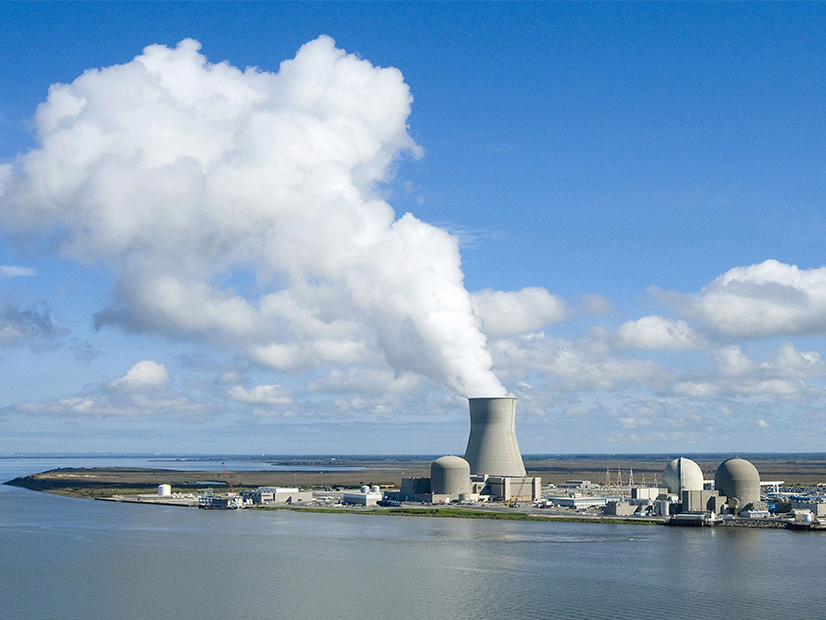
The U.S. Department of Energy on Tuesday invited public comment on a $6 billion program to prevent the early closure of nuclear generators.
The Civil Nuclear Credit Program, funded under the Infrastructure Investment and Jobs Act (IIJA), will allow owners and operators of commercial nuclear reactors at risk of closure to competitively bid on credits to keep them in operation. The IIJA requires applicants to prove their reactor will close for economic reasons and that the closure will result in increased air pollution. Credits will be allocated over a four-year period.
“U.S. nuclear power plants are essential to achieving President Biden’s climate goals, and DOE is committed to keeping 100% clean electricity flowing and preventing premature closures,” Energy Secretary Jennifer Granholm said in a statement.
Nuclear power currently provides 52% of the nation’s 100% carbon-free power, but 12 reactors have closed since 2013 because plant owners said they were unprofitable. Illinois, New Jersey, New York and Connecticut have all approved subsidies to keep nuclear plants within their borders operating.
DOE’s Request for Information in the Federal Register solicits comments on subjects including the certification process, eligibility criteria and allocation of credits. The RFI was accompanied by a Notice of Intent informing generators of the program.
The department’s press release announcing the program quotes an endorsement from Sen. Joe Manchin (D-W.Va.), chairman of the Senate Energy and Natural Resources Committee and an essential vote for the climate programs in the Biden administration’s proposed Build Back Better bill.
“I fought for the inclusion of this critical program to prevent further premature closures of nuclear power plants and to maintain high-paying jobs in communities across America,” Manchin said.
Responses to the NOI and RFI addressing general program design and bid process are due by 5 p.m. MT on March 17. Responses on the certification process should be submitted by March 8.
Battery Supply Chains
DOE last week also outlined a $2.91 billion program in the infrastructure law funding refining and production plants for battery materials, battery cell and pack manufacturing, and recycling.
Responding to Biden’s executive order on supply chains, DOE last year recommended establishing domestic production and processing capabilities for critical materials for a domestic battery supply chain.
One NOI details DOE plans to support the creation of new, retrofitted and expanded domestic facilities for battery recycling and the production of battery materials and cell components.
A second NOI outlines DOE’s initiative for research, development and demonstration of second-life applications for batteries previously used in electric vehicles. It seeks proposals for new processes for recycling, reclaiming and adding materials back into the battery supply chain.



